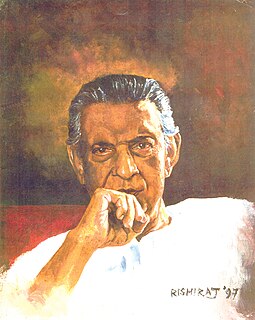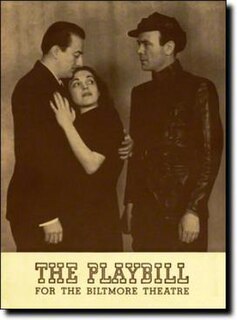| Look up unconquered in Wiktionary, the free dictionary. |
Unconquered or The Unconquered may refer to:
| Look up unconquered in Wiktionary, the free dictionary. |
Unconquered or The Unconquered may refer to:
| This disambiguation page lists articles associated with the title Unconquered. If an internal link led you here, you may wish to change the link to point directly to the intended article. |

Irvine Welsh is a Scottish novelist, playwright and short story writer. His novel Trainspotting was made into a film of the same name. His work is characterised by a raw Scots dialect and brutal depiction of Edinburgh life. He has also written plays and screenplays, and directed several short films.
Lost World may refer to:
It or IT may refer to:
A tie-in work is a work of fiction or other product based on a media property such as a film, video game, television series, board game, web site, role-playing game or literary property. Tie-ins are authorized by the owners of the original property, and are a form of cross-promotion used primarily to generate additional income from that property and to promote its visibility.
Inheritance is the transferring of property and debt upon death to a beneficiary.
A cathedral is a Christian church which contains the seat of a bishop.

Jay Anson was an American author whose most famous work was The Amityville Horror. After the runaway success of that novel, he wrote 666, which also dealt with a haunted house. He died in 1980.
William Morgan "Buddy" Lewis, Jr. was a writer of jazz songs, some of which were also recorded in the pop music genre.
Red dog or Red Dog may refer to:
The Bridge may refer to:

Satyajit Ray was an Indian filmmaker who worked prominently in Bengali cinema and who has often been regarded as one of the great directors of world cinema. Ray was born in Calcutta to a Bengali family and started his career as a junior visualiser. His meeting with French film director Jean Renoir, who had come to Calcutta in 1949 to shoot his film The River (1951), and his 1950 visit to London, where he saw Vittorio De Sica's Ladri di biciclette (1948), inspired Ray to become a film-maker. Ray made his directorial debut in 1955 with Pather Panchali and directed 36 films, comprising 29 feature films, five documentaries, and two short films.
Visitor, in English and Welsh law, is an academic or ecclesiastical title.
A happy ending is a type of plot conclusion.
Breaking Point or The Breaking Point may refer to:
Helen Keller in Her Story is an American biographical documentary about Helen Keller made in 1954.
An impostor or imposter is a person who pretends to be somebody else.
Midnight Ramble is a 1994 documentary about the early history of Black American movies from the period between 1910 and 1950. Known as "race movies", these films, traditionally independent of Hollywood, were made primarily by, for and about the black community. This documentary is a tribute to a film genre that lasted for more than 40 years, produced over 500 movies, and created a foundation for contemporary films from directors such as Spike Lee and Tyler Perry. James Avery narrates this exploration of the early black film industry. There is a mistaken assumption that "race films" began largely in reaction to D. W. Griffith's 1915 The Birth of a Nation. Nothing could be further from the truth. Race movies actually began around 1910 in Chicago in response to the Black Community longing to see themselves reflected on the silver screen via this new medium of film. Wanting to see themselves through their own eyes, on their own terms thus counteracting the Hollywood stereotypes within the American media. The film focuses especially on the work of Oscar Micheaux, considered the "Dean of Black American film", a controversial filmmaker who wrote, produced, and directed over 40 features, and tackled difficult social issues in Black America. It includes clips from films by a number of African-American directors of the period, which is very helpful since many of these films are difficult to find or unavailable. There are two versions of the title of the documentary, both referring to the same work. Initially released in 1994 as, Midnight Ramble: Oscar Micheaux & the Story of Race Movies It was re-released as Midnight Ramble: The Story of the Black Film Industry by PBS in 1995 The 1995 version also eliminates the David McCullugh introduction.
Father and Son or Fathers and Sons may refer to:
Geoff Ryman is a writer of science fiction, fantasy and "slipstream" fiction. Ryman has written and published seven novels, including an early example of a hypertext novel, 253, or Tube Theatre. He has won multiple awards, including the World Fantasy Award.

The Unconquered is a three-act play written by Russian-American author Ayn Rand as an adaptation of her 1936 novel We the Living. The story follows Kira Argounova, a young woman living in the Soviet Union in the 1920s. Her lover Leo Kovalensky develops tuberculosis. To get money for his treatment, Kira has an affair with a Communist official, Andrei Taganov. After recovering from his illness, Leo becomes involved with black market food sales that Andrei is investigating. When Andrei realizes that Kira loves Leo, he helps his rival avoid prosecution, then commits suicide. Leo leaves Kira, who decides to risk her life escaping the country.